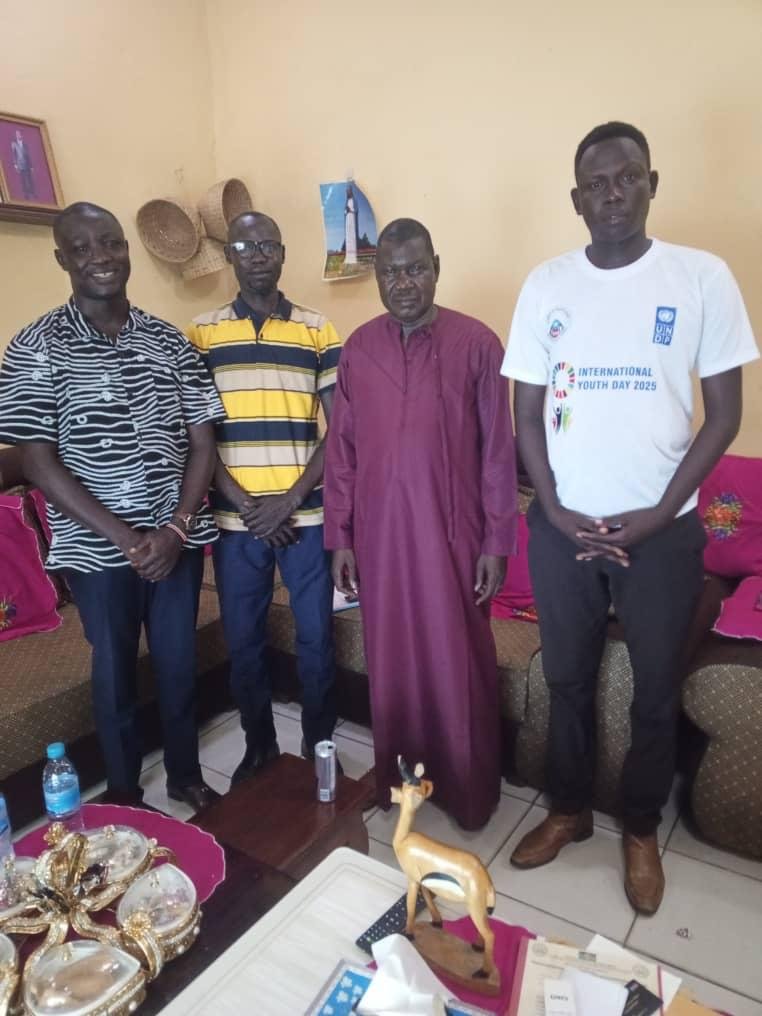Youth leaders from across South Sudan have sent a powerful message to the new Governor of Western Equatoria State citing that young people must be at the center of leadership and development if the state is to thrive.
In what observers are calling a historic show of unity, representatives from the Western Equatoria Youths Union, the Central Equatoria State Youth Union, and the South Sudan National Youth Union met the governor in Juba over the weekend, presenting a set of proposals aimed at tackling unemployment, strengthening peace, and driving economic growth.
The delegation was led by Mr. Silvestor Ruati, Mr. Charles Ladu, and Mr. Taban Paride, who jointly emphasized that youth are not just the majority of the population but also the backbone of the state’s future economy.
Unlike past courtesy visits that often ended with pledges and photographs, this meeting carried a sharper focus: youth employment and participation in governance.
The leaders demanded, full enforcement of the 2% youth representation clause in the Revitalized Peace Agreement.
Establishment of vocational training centers to equip youth with skills for farming, ICT, trade, and entrepreneurship, and investment in quality education, beginning with stronger support for teachers.
“Young people need real opportunities, not speeches. Skills training, jobs, and representation are the only way to prevent frustration and keep our communities peaceful,” one youth leader told the press after the meeting.
The governor welcomed the delegation’s unity and acknowledged the urgency of their demands.
“The energy and vision you bring as youth leaders will not be wasted,” he said.
“I am committed to walking this journey with you empowering young people with opportunities and ensuring your voices shape the future of this state.”
He promised to engage youth unions in policy planning, appointments, and state development projects, signaling a possible shift toward a more inclusive leadership style.
Analysts argue the visit comes at a critical time for Western Equatoria, with unemployment soaring, particularly among graduates, youth frustration has been rising.
Empowering them with vocational skills could spark small enterprises and stimulate local markets.
Western Equatoria has seen years of instability.
Youth inclusion in governance is seen as a way to prevent unrest and instead turn young people into peace builders, and the call to enforce the 2% youth quota tests the government’s commitment to implementing national agreements at the state level.
“This was not just a courtesy call, a political observer in Yambio noted. It was a negotiation for the future of Western Equatoria whether young people will continue as bystanders or step into real leadership roles.” He said.
If the proposals are acted upon, thousands of young people in Western Equatoria could gain access to training in agriculture, construction, and ICT sectors with immediate potential to boost the state’s economy.
“The next generation must not depend only on government jobs, we want youth to be creators of jobs, innovators, and drivers of growth,” said Mr. Ruati.
Such a shift could also increase tax revenues, strengthen food security, and reduce dependency on aid, transforming Western Equatoria into a hub of youth-led productivity.
The meeting marks one of the first major political engagements of the new governor and could define his administration’s relationship with youth.
For now, the message is clear: youth leaders are ready to partner, but they also expect delivery, as one delegate put it:
“We are not here for promises. We are here for results. Our future depends on it.”
